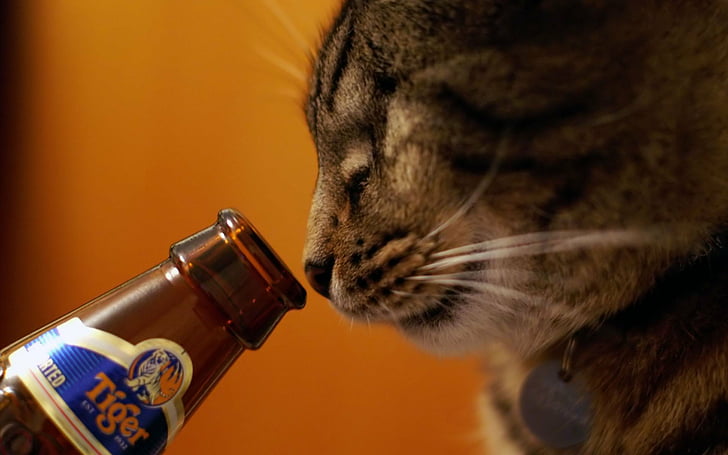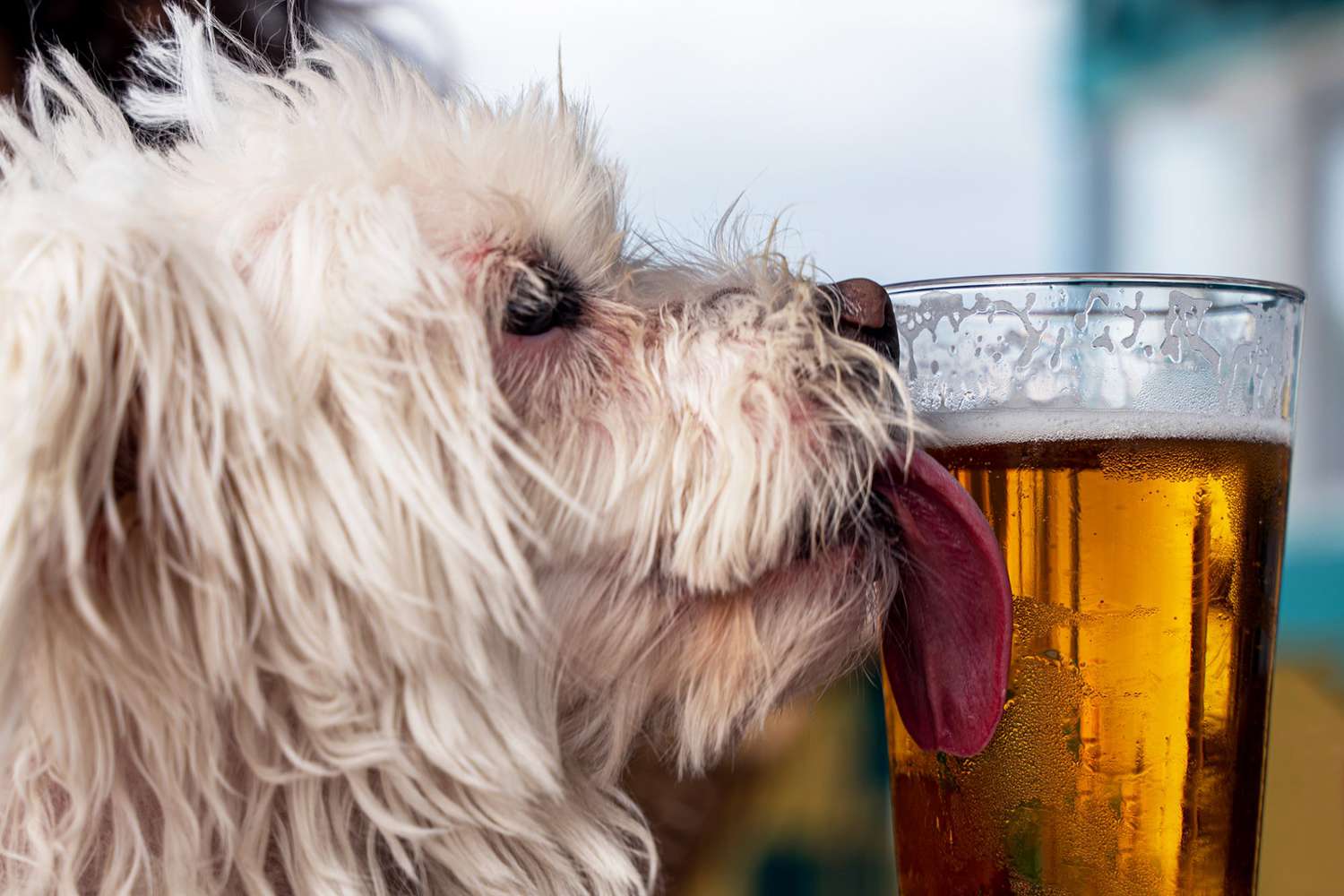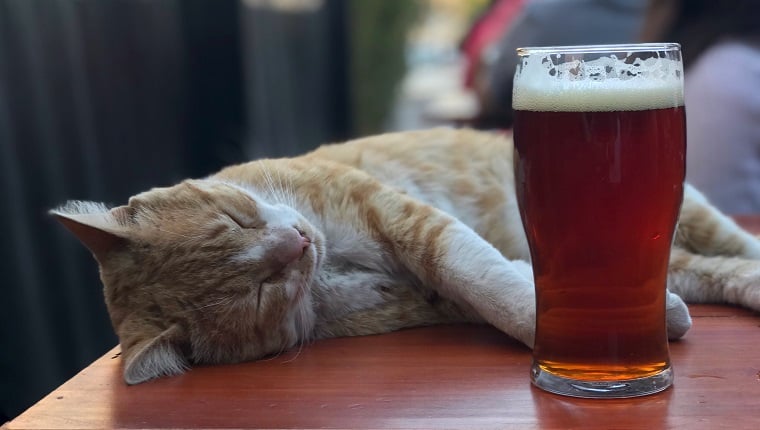Animals can get drunk, just like humans. In some cases, animals seek out sources of alcohol just for enjoyment. Alcohol has a similar effect on animals and humans alike. As drinking has no positive effect on health, it is best to bring your pet to a vet if it drank alcohol.
We like to think of our furry friends as if they were our own family. We talk to them and get emotionally connected. But lovers of nature could get just as attached to wild animals.
Therefore, it’s natural to wonder: What human habits do animals make? Do they get drunk? And what effects does drinking have on them?
This article aims to explore the effects of alcohol on different species and dive deeper into the drinking habits of animals.
Table of Contents
ToggleCan Animals Get Drunk?
Animals get drunk from drinking alcohol, the same way as humans. Their reason for drinking is varied, including enjoyment, circumstance, and coping.
Insects are among the biggest alcohol consumers in the animal kingdom. Butterflies often get attracted to beer. Males are particularly susceptible to drinking as it boosts their spermatophores, a.k.a. male reproductive structures.
Other insects, like fruit flies, prefer to drink after an unsuccessful mating attempt, perhaps to cope. Regardless of species, nearly all animals are capable of getting drunk. The smaller they are, the greater the effects of alcohol on them.
Often, animals get drunk due to circumstances. Herbivores and omnivores in the wild regularly eat fruits, and if they happen to feed on fermented ones, they naturally get drunk. Domesticated animals can get drunk due to the carelessness of their owners. Pets can drink out of unattained beverage cans and drink spills.
When animals get drunk, the following could occur:
- Slow, wobbly movement
- Vomiting
- Dehydration
- Discoordination
- Erratic behavior
- Sleepiness
Is It Safe for Animals to Get Drunk?

As animals sometimes consume alcohol naturally and willingly, it usually isn’t dangerous for animals to get drunk. However, you should never offer animals anything alcoholic, as it can lead to alcohol poisoning or other health hazards.
Although animals are known to get drunk from time to time, humans should never offer booze to them. Each species and specimen have different levels of alcohol tolerance, and the layman may never know how much is the lethal dose.
Animals can also act erratically when they are inebriated. This could make them potentially harmful to others and themselves. Wild animals also need to be alert all the time, as they have to react quickly to potentially dangerous situations.
Alcohol can have severe side effects in animals, including:
- Vomiting
- Nausea
- Depression
- Ataxia
- Coma
In some places, offering animals alcohol is considered animal cruelty and is punishable by law. If you see anyone offer their pet alcohol, intervene and contact animal protection services.
Can Animals Get Addicted to Alcohol?
Animals can get addicted to alcohol. Alcoholic animals will behave similarly to their human counterparts and showcase withdrawal symptoms, such as irritability and restlessness.
Alcohol has a strong effect on the brain, as it can cause the release of dopamine, making the act of drinking a pleasurable activity. Alcoholists associate drinking with pleasure, but as they continue, they need to drink more and more to get the desired effect. This is what leads to addiction.
This process is largely the same in animals, making them just as susceptible to addiction as humans. Animals seek pleasure as well, and some specimens do enjoy being in an altered state of mind. Both animals in the wild and in laboratories can become addicted to alcohol.
Prolonged alcohol consumption builds tolerance toward the substance. For example, the pen-tailed treeshrew feeds on fermented nectar but never gets drunk. This could be attributed to them feeding on alcohol for a long time as a species and developing an evolutionary immunity.
Here are some other animals that consume alcohol, either from fermented fruits or other methods:
- Elephants
- Monkeys
- Fruit bats
- Birds
- Moose
What to Do if Your Pet Drinks Alcohol?

If your pet drinks alcohol, you should contact a vet immediately. It is hard to know how much alcohol your pet consumes, so it is better to be safe than sorry.
Alcohol intoxication among pets is fairly uncommon. The two most popular pets, dogs and cats, aren’t naturally drawn to alcoholic drinks, so you shouldn’t fear being careless about where you put your booze. Regardless, accidents can happen, and it is best to be prepared.
You should keep your alcoholic beverages where your pets cannot reach them. If you notice your pet drinking alcohol, you should stop them and bring them to the vet immediately. Although it is unlikely that they consumed a lethal amount of alcohol, even a little drink can have long-term negative effects on your pet, especially on their liver.
You should never offer your pet any alcoholic beverages. If you do want to treat your dog and involve them in your siesta, there are several alcohol-free, made-for-dog beer alternatives that you could buy for your furry companion.
Conclusion
Animals can get drunk, and many do it regularly. In the wild, animals most often get drunk by consuming fermented fruits, while pets and domesticated animals get drunk by drinking spilled drinks or finding unattained bottles. Some animals get drunk deliberately as they enjoy the sensation, the same way as humans do. Drunk animals will act erratically, move slowly, and may become sleepy-
Alcohol addiction among animals is uncommon, but it can happen. Certain animals prefer alcoholic drinks to non-alcoholic ones and show symptoms of withdrawal when they haven’t drunk in a while, such as irritability and restlessness. Some animals, such as the pen-tailed treeshrew, consume so much alcohol daily that they develop a natural immunity to the substance.
You should never offer any animals alcohol, as it could lead to alcohol poisoning and can make them a danger to themselves and their surroundings. If you see your pet drinking, you should bring them to the vet as soon as possible.

I am a passionate beer connoisseur with a deep appreciation for the art and science of brewing. With years of experience tasting and evaluating various beers, I love to share my opinions and insights with others and I am always eager to engage in lively discussions about my favorite beverage.
















